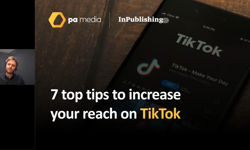
“Dear Ross, I’d like to introduce myself to you as the new account manager at X and Y Public Relations Ltd. Let me know what you’d like to receive from us and how we can help you going forward...”
There’s a pause and then a follow-up: “Dear Dickon, I’m so sorry to have got your name wrong there...”
If you fear that email might have been from you, then fear not. I’m not singling anyone out at all. This innocent mistake happens so often I barely notice it anymore and just treat it as an inevitable result of an unusual name.
There are much worse ways to start emails and I’ve made a list of the top ones here. OK, so some of these might be exactly the right tone to strike with millennial influencers but they tend not to play so well with the grumpy old editors of my generation. They mostly don’t much matter, but they annoy me and sometimes amuse me. So here we go to get these little things off my chest...
- Yay! It’s Friday! To most of us, it’s just a day of the week. But in marketing, it’s a source of uncontrollable excitement and a brand promotion opportunity. It’s more of a marketing habit than PR, but now it’s spreading to other days of the week too. Soon, every day of the week will be an occasion for insane euphoria.
- Dear [first-name] [last-name] We all make mistakes in emails and we all dread doing the same in a bulk mailout but you should be extra careful when the news you are trying to interest us in regards an “unrivalled database of industry contacts” for use in direct marketing. Maybe it is, but your message would be stronger if you cleaned your own circulation data first.
- Super-excited to be reaching out to you to share... Are you? Are you really? Sounds a little forced to me and when I see the story or rather lack of it, I know it must be, because the strength of the story is inversely proportional to the excitement attached to sending it. Also to the number of emojis, which must be a lot and repeated because that’s what the Gen Z intern does. Alright, there’s nothing seriously wrong with it. I and many other journalists just find this kind of gushing language annoying. But we don’t have much time either, so just cut to the chase please. And are you one of the Four Tops? No, so resist the urge to reach out.
- Get a sneak peak... This might fit in with your cleverly planned drip-feed marketing strategy, but we’re working here and don’t have time for such marketing strip-teases. We’re doing a job so stick to the conventions of releases, briefings and press conferences, please. There’s nothing ‘sneaky’ or exclusive about an email sent to the whole database that tells everyone on it exactly what’s coming. If you’re putting it in the public domain, it’s an announcement no matter what you choose to call it. But, if you insist, do at least spell it right: sneak peek. It’s not a sly summit.
- You are invited to our round table on... Why does no one hold proper conferences anymore? These events, which I suspect are set up like this to hide the fact they don’t really have any news to impart but need to improve their media engagement record for their CEO, are often held under ‘Chatham House rules’ as well, so they might be useful backgrounders if you have the time but you can’t actually attribute any news from them even if they were any to report. Some PRs don’t seem to understand that’s what Chatham House rules are supposed to mean either.
- Here’s that 300dpi image you asked for. Yes, we print at 300dpi but if you have a 72dpi, you don’t make it print resolution just resaving it at a different resolution. Print needs bigger images than screens. It must be 300dpi at the size it will be reproduced. If there’s one simple, practical thing PR and marketing execs should learn early on, it’s understanding digital image sizing. Dig out the original and send that please.
- Under embargo until... That’s fine, we magazines with our weekly or monthly schedules like embargos; they help us to be more timely compared to other media. But not if it’s already in the public domain and especially if it’s you that put it there. An embargo should be the same for everyone. If you have exceptions for your favourite media (usually a broadcaster or a national paper), the embargo no longer stands. There are no selective embargos.
- We would like to recall the press release...Please delete the message immediately and do not use... This one never arrives after an interesting release, only a really very dull one. The request is usually unnecessary because it’s always something so unworthy of coverage that it was deleted as soon as it arrived. However, this is guaranteed to get us fishing it out of the email bin. So much so, I’m surprised PRs don’t use it as a ploy to generate more interest in their new offices or appointment of a new south-west regional sales director. Or perhaps they do.
- I wonder if Information Age may like the following exclusive piece... An exclusive can be many things: a story you broke, images that no one else has, an interview unique to you, a story you caried first in your market or country, or even just a story that no one else ran but is just so right for your audience. But it does need to be unique to you. I replied to that one explaining I didn’t know if Information Age would like that piece because I don’t edit Information Age. You would have to ask the editor of that title, and perhaps they got an offer of an exclusive for E&T, which I edited. Whatever happened, it doesn’t sound very exclusive to me.
And what would we really like? A decent story please, that doesn’t require gushing superlatives to convey its importance and comes with a suitably sized image. If you really want to help...
This article was first published in InPublishing magazine. If you would like to be added to the free mailing list to receive the magazine, please register here.












